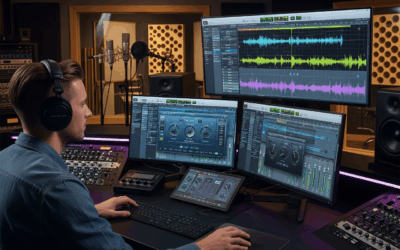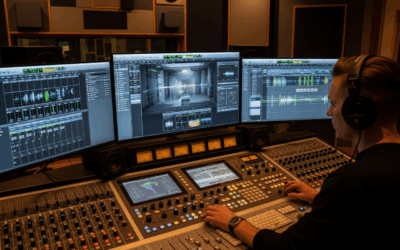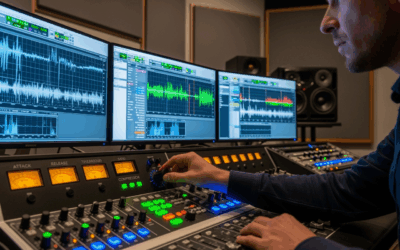The Problem: You’ve invested in decent recording equipment and editing software, but your podcast still sounds unprofessional compared to the shows you admire, leaving you frustrated and your audience less engaged than they could be.
The Solution: Three specific technical adjustments can transform your podcast from amateur to professional-sounding in a single recording session, dramatically improving listener retention and perceived expertise.
The Amateur Audio Giveaways
Before diving into solutions, let’s identify what makes a podcast sound amateur. The most common issues aren’t related to expensive equipment—they’re technical problems that can be fixed with proper technique:
- Inconsistent volume levels that force listeners to constantly adjust their volume
- Room echo and reverb that makes voices sound distant and hollow
- Background noise and mouth sounds that distract from your message
These issues signal to your audience that you’re not serious about your craft, which undermines your credibility regardless of how valuable your content actually is.
Fix #1: Master Your Recording Levels
Most amateur podcasters record too quietly, then boost the volume in post-production, which amplifies noise along with their voice. Professional podcasters record at optimal levels from the start.
The technique: Aim for your voice peaks to hit around –12dB to –6dB on your recording meter. This gives you a strong signal without risking distortion. Speak at your normal conversation volume about 6–8 inches from your microphone. If you’re consistently hitting the red zone, move back slightly rather than turning down your input gain.
Quick test: Record yourself saying “Testing, one, two, three” at different distances and input levels. Find the sweet spot where your voice sounds full and present without any distortion, then mark that position and input setting for consistent results.
Fix #2: Control Your Recording Environment
Your recording space has more impact on your sound quality than your microphone choice. Professional podcasters create controlled acoustic environments that eliminate distracting reflections and background noise.
The technique: Record in your smallest room with the most soft furnishings—often a bedroom or walk-in closet works better than a large, empty office. Position yourself away from parallel walls to avoid flutter echo. Use blankets, pillows, or couch cushions to create absorption around your recording position.
Advanced tip: Create a “reflection filter” by hanging a thick blanket or moving blanket on the wall directly behind your microphone. This eliminates the most problematic reflections that cause that hollow, distant sound.
Fix #3: Implement Proper Post-Production Processing
Raw recordings always need processing to sound professional, but most amateur podcasters either skip this step entirely or apply processing incorrectly, making their audio sound worse.
The essential chain: Apply these processes in order:
1. High-pass filter at 80–100Hz to remove low-frequency rumble
2. Noise reduction to eliminate consistent background noise
3. EQ to enhance clarity (gentle boost around 2–3kHz for presence)
4. Compression to even out volume variations (3:1 ratio, slow attack, medium release)
5. Limiting to prevent peaks and ensure consistent loudness
Processing guidelines: Less is more. Each process should be subtle—if you can obviously hear what you’ve done, you’ve probably overdone it. The goal is natural-sounding speech that’s clear, consistent, and free from distractions.
The Professional Mindset Shift
The biggest difference between amateur and professional podcasters isn’t equipment—it’s consistency and attention to detail. Professional podcasters:
– Record in the same location with the same setup every time
– Monitor their audio levels throughout recording
– Listen back to their processed audio on different playback systems
– Maintain detailed notes about their processing settings for consistency
Pro Tip: The most common mistake amateur podcasters make is trying to fix problems in post-production that should have been prevented during recording. Spend 80% of your effort getting clean recordings, and only 20% on post-production enhancement. A well-recorded podcast in a treated space needs minimal processing to sound professional, while a poorly recorded podcast can never be fully fixed, no matter how much processing you apply.
Ready to take your podcast to the next level? Contact RHDR Media at (901) 485–9180 or visit rhdr.media for professional podcast production services. Whether you need complete post-production, recording consultation, or live direction coaching, let’s make your podcast sound as professional as your message deserves.





0 Comments